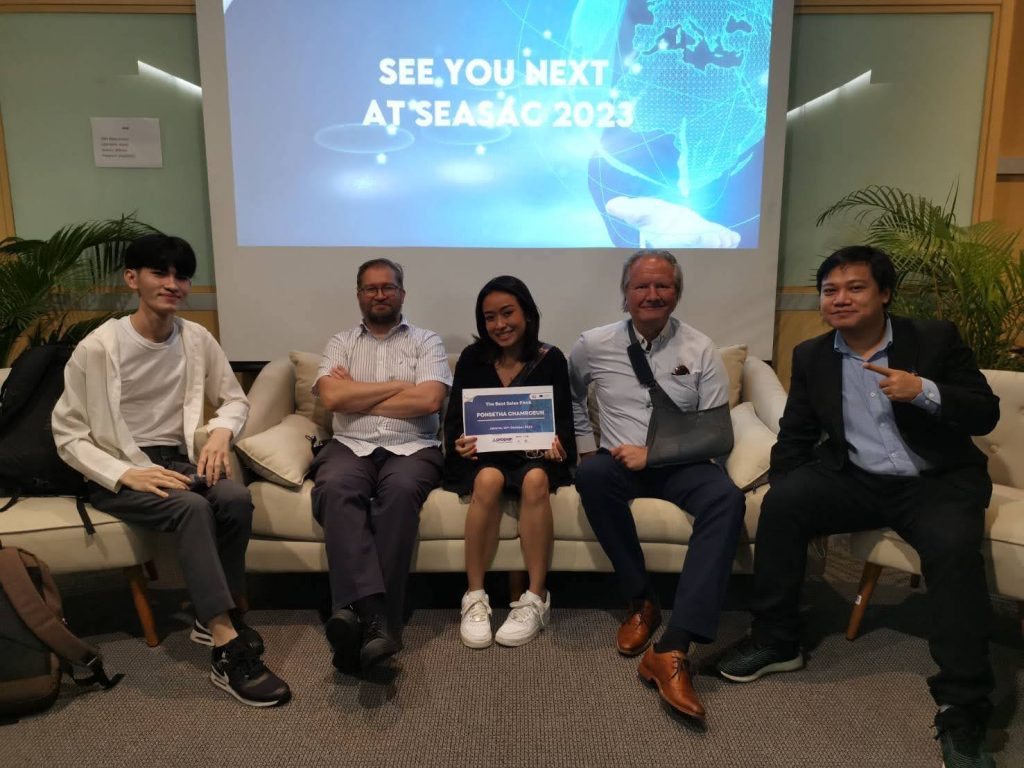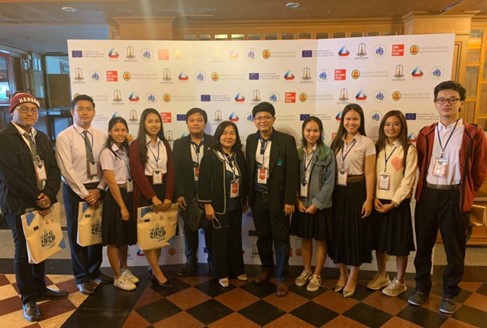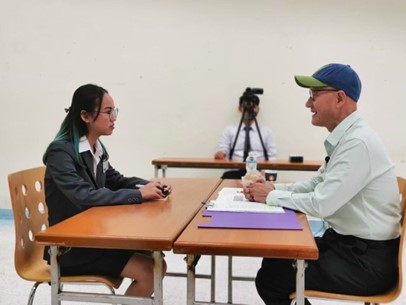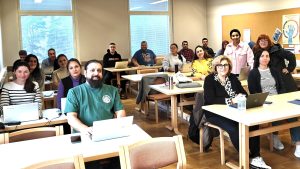Rakentaminen ja tehdasteollisuus, eli teollinen tuotanto, ovat yhteiskuntamme keskeisiä toimialoja. Niiden lähtöasetanta, tavoitteet, toimintalogiikat ja hallintamallit eroavat kuitenkin toisistaan merkittävästi….
Tekijät | Authors

Role-playing based B2B sales practice improves learning in Entrepreneurship Education
By utilizing ethnographical method, it was observed that the level of entrepreneurship related performance of the observed students improved during the four-month course. t was found that the role-play based B2B sales practice influenced students entrepreneurship related performance, like creativity, risk taking, and improvisation.
The entrepreneurship education has long been under the ongoing debate of how we can teach entrepreneurship successfully. Many educators and research scholars have tried to put forward the framework of entrepreneurship education that creates potential entrepreneurs. This article emphasizes the method introduced during the SEASAC-project, so called “the role-play based B2B sales practice” in applying to the entrepreneurship class in one of the largest research institutions in Thailand. The researchers observed the level of entrepreneurship related performance during the four-month course of spring 2022 using the ethnographic method and discovered that the SEASAC’s role-play based B2B sales practice has a significant impact on student entrepreneurship related performance.

Author with the SEASAC participating students taken by the student organizing committee
The SEASAC project aims at promoting the B2B sales among South-East Asian universities based on the accumulated knowledge from European sales competitions. The project was co-founded Erasmus+ programme by the European Commission and resulted three well-recognized international competitions for B2B sales in South-East Asia. In addition, the SEASAC project also accumulated sales knowledge for the South-east Asia context and enabled the development of several B2B sales courses within participating universities.

Typical B2B sales meeting practice taken by the student teaching assistant
Role-playing based practice allows students to be creative in improvising narratives that make sense and impress potential clients
The highlight of the sales practice is the situational and role-playing based practice. The concept of the role play based practice might be contingent with various class teaching method. The situational and role play based practice is unique in terms of practicality and creativity.
The role play method introduced during the SEASAC-project
Role play-based practice was one of the most important components of improving B2B sales techniques during the SEASAC project. The student would represent a company that is offering a product or service to a potential client company, while another person would represent the buyer. Depending on the circumstances, the seller and buyer would meet for 10-20 minutes. During the meeting, sellers must use their own styles and creativity to persuade buyers to proceed to the next step or accept the deals. The role play based practice always uses real B2B products or services from the industry as the situational context. This way, students´ can do wider research and gain deeper inside into the industry and the product they are representing. Furthermore, the role-playing based practice allows students to be creative in improvising narratives that make sense and impress potential clients. The creativity and improvision are perceived as the important skills for a Sales Professional especially in the ASEAN context.
The study discovered that students expressed their perceptions of skill improvement in terms of creativity, risk taking, and improvisation
Applying the role-playing based sale practice in the entrepreneurship education can enhance students competences. The authors had implemented the role-playing based practice in the international entrepreneurship course in spring 2022 and accessed the student’s individual performance during the four-months period. Based on the ethnographical approach, 21 students were being observed and interviewed regarding their thoughts on activities. The study discovered that the students´ expressed their perceptions of skill improvement in terms of creativity, risk taking, and improvisation. The students were surprised by what they could accomplish with these activities and impressed by how they could create their own narratives that gained the trust of the buyer.
The role play based practice and international B2B sales competitions enhance the students sales skills, like communication skills, problem-solving skills, creativity skills, risk taking skills and improvisation skills. The knowledge accumulated from the role play based practice and the competitions also benefit students in several ways. Especially, in the application of role-playing based sales practice for entrepreneurship class.
Although the entrepreneurship class aimed to improve students’ new ideas for venture creation, sales related skills are very important factors in launching and maintaining the venture. Also B2B sales require the seller to identify the problems and needs of buyers as well as creatively convince them to accept the offerings. The problems and needs that students identify in entrepreneurship class can be used as signals of opportunity for new venture creation. As a result of incorporating B2B sales techniques into the entrepreneurship class, students gained more confidence in developing their own sales technique styles, which serve as the activator to entrepreneurial activities such as venture creation.
Presented results in learning outcomes have global significance. Problem-solving and creativity skills are both highlighted in Global Economic Forum’s listing of top 10 skills as well as in the EU Agenda for Higher Education (2017) in promoting innovation and smart specialization.
SEASAC- project is co-funded by Erasmus+ programme by the European Union. The main aim of the SEASAC project is to strengthen South-East Asian Universities’ capability to provide highly skilled B2B Sales professionals for the emerging international markets. The project consortium consists of two Universities from Thailand, five Universities from Indonesia, four Universities from Europe and one governmental organization representing SEA region. SEASAC project is coordinated by the Turku University of Applied Sciences, Finland.
Artikkeli on osa Myynti ja B2B-liiketoiminta -tutkimusryhmän julkaisuja.








